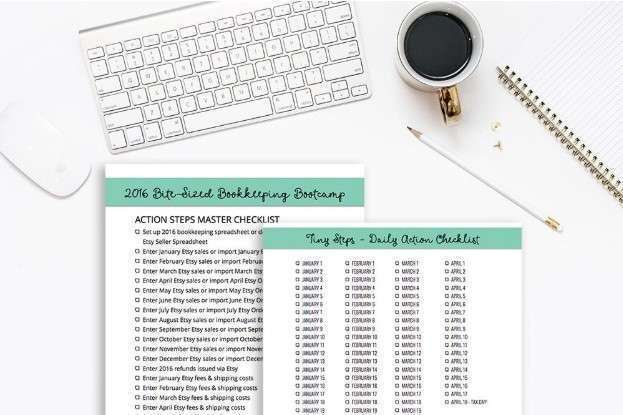
It should provide features and capabilities that align with projected increases in transaction volumes, employee count, and financial complexity. The software’s scalability ensures that the business won’t outgrow its accounting system, preventing disruptive migrations down the line. Midsize companies benefit from the flexibility afforded by accounting software.
Payments Collected
Think real-time reporting, time and expense management, project accounting, and revenue management among other options. Accounting software has long become integral to business management, streamlining financial processes, enhancing accuracy, and enabling informed decision-making. As midsize businesses continue to occupy a significant space in the corporate landscape, accounting software should address their unique financial management needs. Selecting suitable software tailored to their scale and requirements can significantly impact the operational efficiency of midsize businesses, so they should approach it wisely. Zoho Books is a comprehensive smart accounting software solution designed for small businesses to better manage their finances and control their cash flow more efficiently.

FreshBooks: Best billing and invoicing tool
To start with, off-the-shelf and cloud-hosted accounting software systems cost considerably less than they did a decade ago, carry out all regular functions, and pull off just the same balances and reports. Accounting, and accounting software, can often seem like dull chores that take away from the “real work” of running and growing a business, best accounting software for medium sized business like marketing or sales or delivering your product or service. But avoiding the accounting can be a mistake, especially for businesses that have grown beyond the “micro business” stage. If you’re traveling and have expenses on the road, you can usually take pictures of receipts with your smartphone and upload them to your accounting app.
- QuickBooks Online is a cloud-based accounting solution created for small businesses, independent firms, and freelancers.
- Zoho Books is predominantly designed for small and medium businesses, which is why it offers one of the lowest and most flexible pricing schemes.
- We can say the key accounting software features for mid-sized businesses run the gamut of small business and enterprise accounting needs.
- Other key accounting essentials for midsize companies, especially the larger ones, include cash management, budget & forecasting, tax management.
- Moving to a cloud-based accounting system will provide easy, remote access to live data, improved security, instant upgrades and a better user experience.
- Moreover, their lean organizational structure necessitates that owners wear multiple hats – from finance to marketing to customer service – making effective time management an uphill battle.
Small Business Accounting Software

An ever-increasing number of companies are turning to cloud accounting software to help streamline their financial operations. Each of those users can expect top-notch inventory https://www.bookstime.com/ management, payroll (an optional extra) and reporting. It can generate up to 200 types of reports as needed for those looking to get a holistic view of their income and expenses.
QuickBooks Online: Most comprehensive features
You can split transactions that should be assigned to multiple categories, make notes, and reconcile your accounts with your bank and credit card statements. Accounting services pay special attention to your company’s expenses—not bills that you enter and pay (though some support this), but rather other purchases you make. This is an area of your finances that can easily get out of control if you don’t monitor it. So, small business accounting software separates them into expense types. Next, the software compares them to your income using totals and colorful charts.
These software systems can help you manage business finances more efficiently, and set you up to transfer to more complex systems later as your business grows. There are other reports, though, that aren’t so easy to understand. Small business accounting software can generate them, but you may need an accounting professional to analyze them and tell you in concrete terms what they mean for your company. Most are the type that any small business owner could customize, generate, and understand. It’s refreshing to see a software developer take a step back and develop a very simple accounting application for the many millions of extremely small businesses that process fewer than 500 transactions per year.

- These include online invoicing, expense tracking, projects, balance sheet, Profit & Loss, and custom financial reports.
- Most are the type that any small business owner could customize, generate, and understand.
- The more advanced tools suitable to a mid-sized operation are available in the paid plans.
- We also studied the platforms’ customer service quality, scalability, ease of use, learning curve and automated features, among other elements.
- Enterprise can manage more customers, inventory, vendors, and concurrent users than its predecessors.
- Sage Accounting Start is an entry-level accounting software plan ideal for self-employed and microbusinesses that costs $10 per month.
- But avoiding the accounting can be a mistake, especially for businesses that have grown beyond the “micro business” stage.
- The platform can ensure that you never run out of materials for your operations by automating purchase orders according to your company policies.
- It’s an all-in-one enterprise resource planning solution that offers value to businesses of all sizes.
- If you just want to get set up as quickly and as easily as possible, we recommend QuickBooks or Kashoo.
- This is an area of your finances that can easily get out of control if you don’t monitor it.
- Zoho’s accounting offering has a 14-day free trial as part of its Premium plan, but we summarise the costs below.







